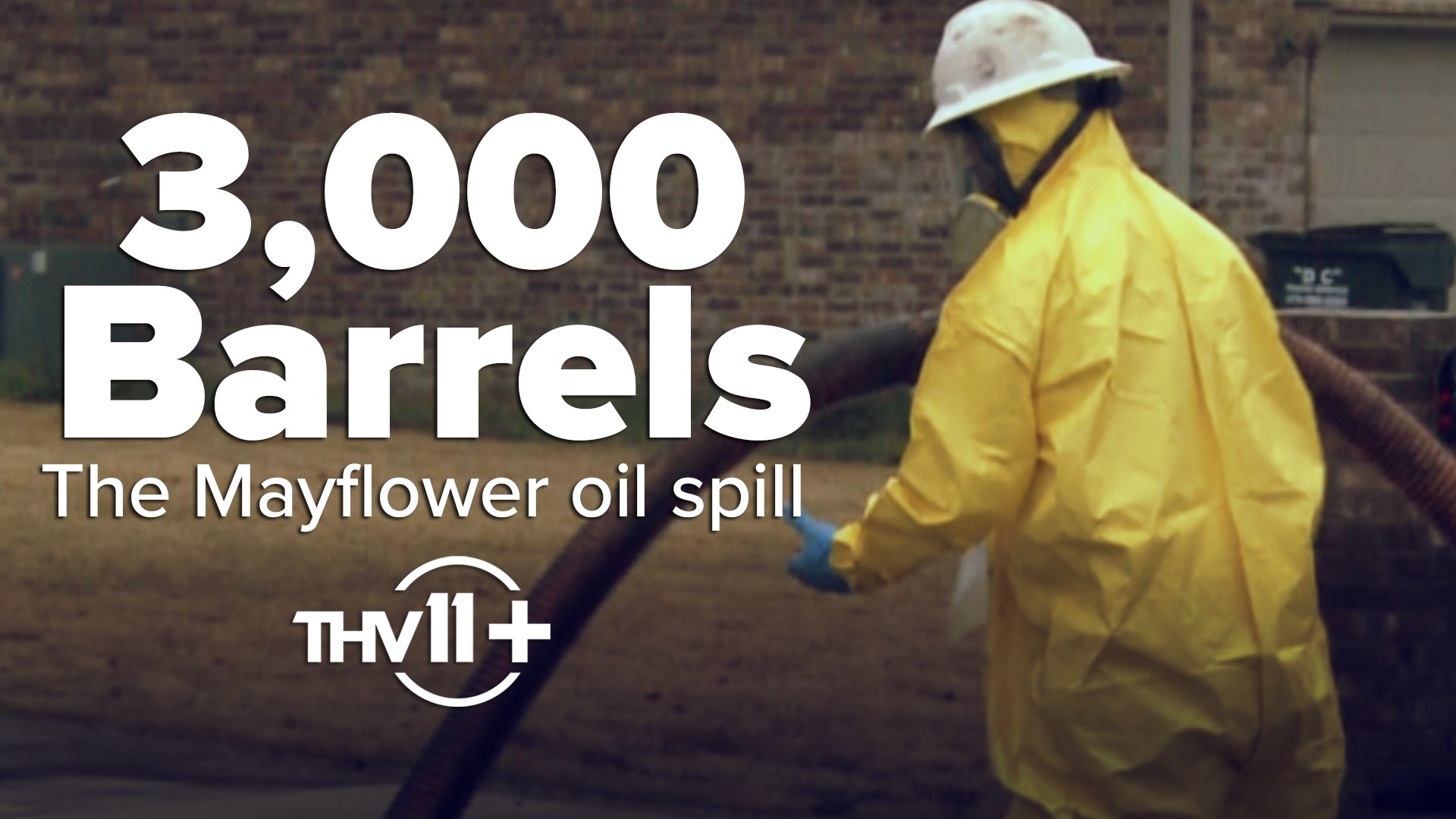MAYFLOWER, Ark. — In the decade since a pipeline ruptured in the small Arkansas town of Mayflower, the community has dealt with health issues, environmental concerns, and the questions that linger about the pipeline industry.
On March 29, 2013 ExxonMobil's Pegasus Pipeline, which was carrying Canadian crude oil from Illinois to Texas, ruptured in the Northwoods subdivision in Mayflower.
The pipeline spilled out more than 3,000 barrels of oil into the neighborhood, seeping under homes and saturating yards.
"Two things can be true at the same time," said Arkansas Attorney General Tim Griffin, who was a congressman at the time of the spill. "It can be true that pipelines are the safest way to move these products underground. It can also be true that in this case, mistakes were made by people."
Griffin continued, saying that anything "humans touch is subject to error and mistakes."
Mike Beebe, the Governor of Arkansas when the spill happened, noted the initial concerns were about how permanent the damage would be.
"How bad was it? And how do we stop the spill? You've already got some spill, but we've got to stop the continuation. How far is it gonna go? Are there other weaknesses or areas in this line that we need to be worried about immediately," Beebe remembered.
On the day of the spill in 2013, police and firefighters responded to the scene, figuring out where it was coming from and trying to prevent it from spreading any farther.
In the immediate days after, then-Attorney General Dustin McDaniel toured the damage with other city leaders.
"I have been reminded by Exxon's representatives that this is a relatively small spill," McDaniel said at the time. "I hope that they realize that to the homeowners in this area. It is not small, it is catastrophic."
In 2013, Tim Griffin was active in the response to help after the spill despite splitting time between Arkansas and Washington D.C.
"I remember this episode of my life very, very well because I poured probably more hours into that...than any other event or issue during my time in Congress," Griffin said.
"You were dealing with people's lives, their emotions, [their] possessions...just the routine of daily life of getting up, and taking a shower, and going to work, and having kids play in the yard, and all of those things because they were completely displaced."
Several families were evacuated from their homes while Exxon crews attempted to remove all oil from the surrounding environment. A total of 22 homes were evacuated in the spill's aftermath.
The EPA was also on hand to monitor air quality in what it labeled a "major spill," but some residents reported issues with headaches and other sicknesses due to the smell.
Two weeks after the rupture, crews cleared the soil around the pipeline and located the 22-inch long rupture. Exxon officials removed the broken section for analysis.
Governor Beebe recalled that concerns started to grow about the effects the spill would have on Lake Conway.
"I mean, they fished in it, they floated in it, they swam in it," he said.
Arkansas Game & Fish employees were quick to respond to the ditch where the oil was flowing into a cove of Lake Conway. Trey Reid with AGFC said the agency is proud of their employees' quick thinking.
"[They] headed over with a track hoe and were able to create an earthen berm, sort of a dam there to to sort of staunch that flow of oil almost immediately," Reid said.
Reid recalled the concern over the marine life and how the oil would impact their lives.
Wildlife experts gathered and rescued dozens of animals, catching them, cleaning them, and getting them out of shock before releasing them back into their habitats.
"Arkansas Game and Fish works with a lot of partners, the forest industry, the oil and gas industry," Reid said. "It's definitely a balance. If something does go wrong, we need to be there to to help where we can.
The damage was so permanent for several homes in the Northwoods neighborhood that it was necessary for them to be torn down. Some residents even sold their homes to the oil company and moved out of Mayflower.
"What lessons can we learn from this pipeline that applies all around the country," Griffin asked.
Despite the spill, Griffin is still a "firm believer" in pipelines.
"We've seen what happens when you move hazardous material above ground. They're the safest way as opposed to rail or driving beside you at a high rate of speed on Interstate," Griffin said.
"I think we got through it about as well as could be expected," Beebe said. "There were times during that you just felt for those people who were displaced [and] their children. They didn't understand why the neighborhood where all their friends were was off limits."
Reid can look back a decade and say it could've been "much worse" and is "glad that it wasn't."
In 2015, ExxonMobil paid a little over $5 million to settle claims that it violated the Clean Water Act and Arkansas environmental laws.
The company did not admit liability in the spill.
The pipeline has sat dormant in Mayflower for the last decade. In a statement, the company that now owns the pipeline, Energy Transfer, said it has not announced any plans to restart it.

